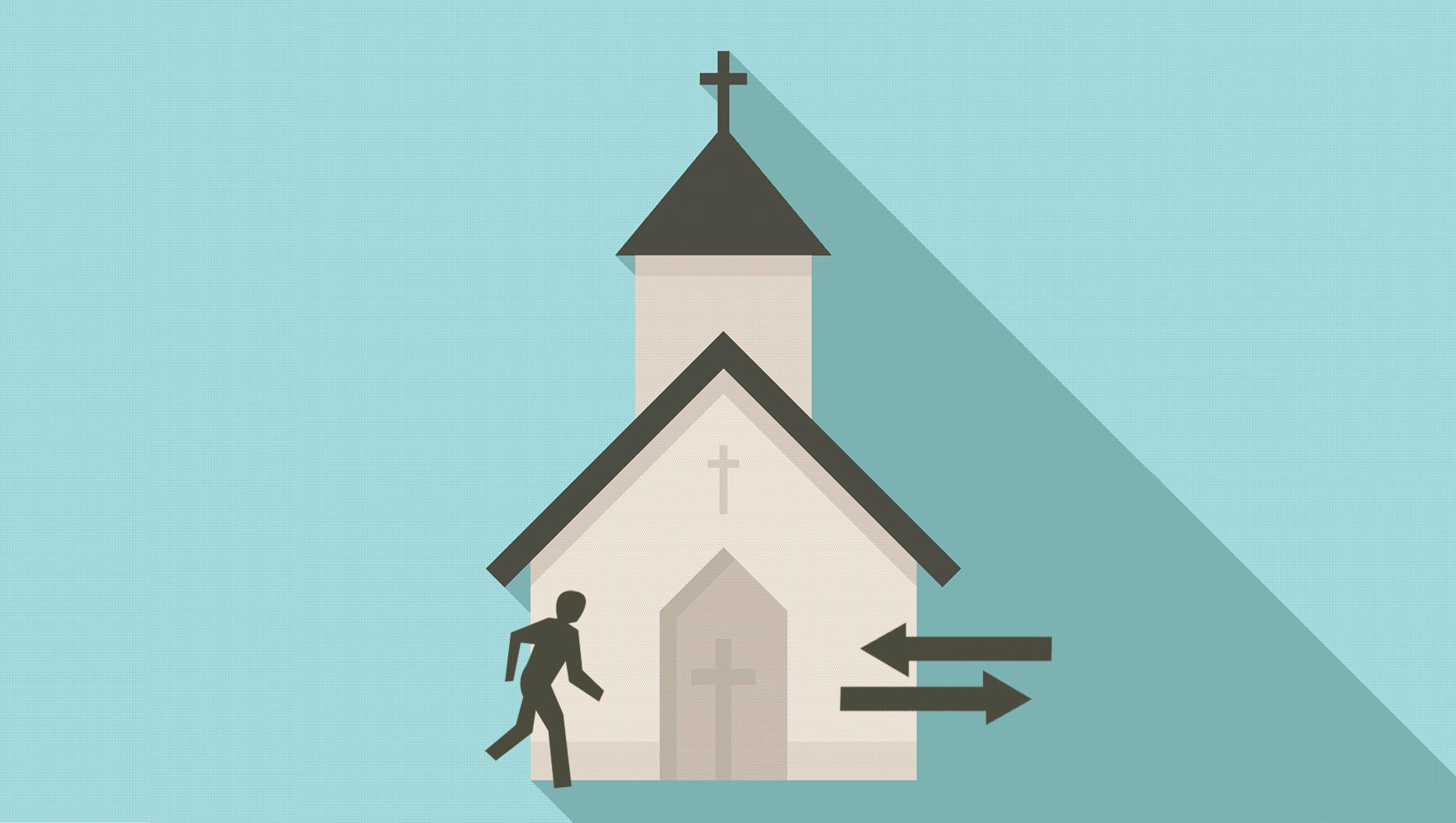Can God change those who are addicted to pornography? Yes, God can and does bring people out of their isolated, imaginary world of sexual addiction into the real world of authentic, loving relationships with God and people. David Powlison explains that change happens as people are lovingly challenged to face their behavior honestly, understand its roots, and turn to God for help. True change from God will bring freedom from pornography addiction by transforming the sexual addict’s imagination and behavior.
Have you ever said anything like this?
“I’ve tried to stop so many times, but somehow I’m still end up in front of the computer surfing websites.”
“Cold showers, prayer, avoiding situations—I’ve tried everything. Is there any hope for me?”
“I know I should get help, but I am too ashamed.”
“I thought only men struggled with pornography, but I spend way too much time in my own little fantasy world.”
If you have, it’s likely that you are feeling trapped by an addiction to pornography and sexual fantasies. You feel guilty and ashamed, but you just can’t seem to stop. Maybe you are starting to notice that your relationships with the real people in your life are being affected by your struggle.
There is no magic bullet to free you from your addiction, but when you ask Jesus for help, he will come to you mercifully and firmly. Jesus welcomes all kinds of strugglers into his kingdom, and his Spirit will provide the deep down change you long for.
Change happens when you face your behavior honestly, understand the roots of your behavior, and then go to God to work true change in your life. The true change that comes from God will affect not only your behavior, but your imagination and desire life. Do you believe God can do this? Take a step of faith; read this booklet, and ask God to use it to begin to change you.
What is Pornography?
The first part of the word pornography, “porné,” means immorality and the second part, “graph” means to write, draw, or portray. Pornography is about picturing, imagining, and fantasizing about immorality.
Pornography has been around for centuries. But the widespread availability of pornography means the problem touches more people than ever before. Soft core pornography is everywhere you look: television, movies, magazines, billboards, and even posters at bus stops. And it’s not just in the media. In our world, both men and women dress to attract attention and to elicit romantic or erotic feelings in others. We are all bombarded with pornography every day—it’s the atmosphere we live in.
And pornography isn’t just a male problem. Both sexes have immoral fantasies. Women might be more captured by romantic literature and men by erotic pictures, but the end result is the same—you are committing adultery in your thought life.
Fantasizing Immorality is Wrong
Perhaps you have been told that fantasizing immoral images and actions isn’t really wrong. It’s true that it’s a different kind of wrong than having an actual affair, but it is still sin. Jesus made this clear when he said, “anyone who looks at a woman lustfully has already committed adultery with her in his heart” (Matthew 5:28). It’s important for you to acknowledge that what you are doing is wrong, because you won’t fight well unless you are able to say, “This is an enemy. When I do this, I sin.”
What Does Progress Look Like?
What does progress in your struggle with pornography look like? In all typical human struggles (like anger, anxiety, escapism) winning doesn’t mean achieving perfection. It means having a new goal and a new direction. Your direction in life determines your final destination. Where are you headed? Are you going in the right direction? Going in the right direction in your struggle with pornography means learning to fight your temptation to sin, to handle your guilt when you fail, and to understand and avoid the circumstances in which you are tempted.
Making progress in these three areas does not mean you will suddenly get teleported from the mire in which you now live to the mountaintop of freedom from all temptation. Change in these areas means taking many small, incremental steps in the right direction. For example:
- A decrease in the frequency of a sin is a true good. It’s not good that you are still indulging in pornography, but if you are doing it less, you are going in the right direction.
- A change in the actual nature of the sin is progress. If you are no longer having an affair or premarital sex, and now you are battling pornographic fantasy, it’s good that your struggle has changed from your actions to your imagination.
- A change in the battleground is progress. When your battle has moved from purchasing materials or going onto explicit internet sites to battling the old fantasy tapes that are still in your mind, that’s movement in the right direction.
- An increase in honesty and accountability is progress. You are moving forward when you are willing to be truly candid and accountable to a trusted friend, spouse, or pastor and say, “Here’s where I’m struggling.” An appropriate openness to others is a very significant step towards change.
- Not always responding to difficult circumstances by indulging in sin is progress. If your life gets hard and instead of going straight to your fantasy life, you pray for help and ask others to pray for you, then God is at work.
- Repenting more quickly is progress. Learning to go more quickly to the Lord of life, instead of wallowing for days, weeks, and months in the gloom of “I failed again,” is a sign that God is at work in your life.
- Learning to love and consider the interest of real people is progress. Your immoral fantasies use other people in an imaginary world. Caring for others, even in small ways, means that Jesus is changing you.
Understand Your Deeper Struggle
How do you get going in the right direction? You start by understanding your struggle. It’s easy for your big, obvious sins (like surfing the internet for pornographic material) to conceal the deeper sins that fuel your struggle with pornography. But unless you recognize and repent of the sin patterns underlying your addiction, you won’t be fighting the right battle. I learned this when I counseled Tom,1 a single, Christian man in his late thirties who had been struggling with pornography and masturbation since he was a teenager. He had tried all the right things: accountability, memorizing the Bible, exercise, cold showers, and being involved in ministry. But he still struggled.
When I asked him to keep a record of when he was tempted, he said to me, “I already know when. It’s usually on Friday night. It’s my temper tantrum with God.” I thought his big struggle was with pornography, but all of a sudden he was talking about anger at God!
Then he said, “I’m tired and lonely on Friday nights. I think about my single friends on dates and my married friends with their wives, and I feel sorry for myself. I get angry at God because I think he owes me a wife, and I don’t have one. By 9 o’clock the temptation to sexual sin is overwhelming, and I give in.”
Tom’s fight with sin focused on just one thing—his struggle with pornography. But underlying that struggle was Tom’s anger at God, self-pity, envy, and, a hugely significant issue, his belief that God owed him a wife. Tom’s desire for a wife had become what the Bible calls a “lust of the flesh.” A lust of the flesh is any desire (even a desire for a good thing like a wife) that dominates our lives, anything we organize our lives around except God. Tom’s lust for a wife fueled his sins of self-pity, anger at God, and then pornography.
Tom was also a legalist. He believed that when he tried to be a good Christian God owed him goodies (such as a wife), and when he did something wrong he despaired. Tom’s imagination was much more than a sexualized imagination. It was full of envy, grumbling, and believing that what he did would either pry goodies from God or release a whirlwind of punishment. His imagination didn’t include the gospel, forgiveness of sins, understanding God’s love for him, or understanding the help that’s available from the Spirit of God. Underneath all of Tom’s sins was unbelief. He was living as if God wasn’t with him and wasn’t able to help him in his time of need.
As Tom faced these deep sin patterns and confessed them to God, he started to grow and change. His entire Christian life had been about managing one moral failure, but now his Christian life began to sparkle. He was fighting a much broader battle, and God gave him a wider vision to see the real battle and the real grace of God that was available for his whole life, not just one area of temptation.
You can take the same journey that Tom did. Start a journal, and keep track of what’s happening in your life when you struggle with pornography. Answer these questions:
- When does it happen? What is going on? What happened that day?
- What were you thinking about? What was the nature of the temptation?
- What did you do about it? Did you act on it?
- If you didn’t act on it, how did that happen?
- If you did what did you do after you fell?
- How did you recover? What was the after-effect?
Keeping this journal will help you see what is really going on in your struggle with pornography. As you start to grapple with your deeper sin patterns, you’ll see that your problem is much bigger, your need for grace is much deeper, and your goal is much more magnificent than you ever imagined.
Did you find this blog helpful? Sign up for our weekly email to receive other content and news!
You Go to God
What do you do when you see the scope of the battle you are fighting? How do you begin taking those small steps in the right direction that will add up to deep down change? You go to God. These four words—so simple to say and so hard to do—are at the center of how you fight against sin.
Why is this so hard? Because your natural instinct is to turn to yourself, instead of to Jesus. This is true of all sin, but it’s obvious in your struggle with pornography because it’s a solitary pursuit. Your pornographic sins are, by definition, only about you: what you want, what you hope for, and what you long for. When you are facing hard or disappointing circumstances—boredom, loneliness, money problems, fighting with a spouse, distance from a friend—it’s easy (and instinctive) to turn in on yourself and try to escape your troubles by going to your fantasy life.
After you sin, it’s easy (and instinctive) to stay turned in on yourself, but in a different way. Now, because you feel guilty, you chew on yourself, kick yourself, and are dismayed with yourself. But even your guilt is all about you.
Your only hope for deliverance from this never ending cycle of self is going to Jesus. How do you recover from defeats? You recover from defeats by going back to the God who offers mercy and forgiveness to you through the death of his own Son on the cross. Jesus died so you could be forgiven.
How do you face hardship, boredom, hurt, betrayal, and loneliness? By going to the God who is there, who is not surprised by sexual sin, who hears you, who cares about you, who wants to be in relationship with you. He is able to change your instinctive patterns.
* * * * *
1Pseudonyms are used for counselee names and personal details have been changed.
This article is adapted from the forthcoming mini book, Sexual Addiction: Freedom from Compulsive Behavior copyright © 2009 by Christian Counseling & Educational Foundation. Used by permission of New Growth Press and may not be downloaded and/or reproduced without prior written permission of New Growth Press. www.newgrowthpress.com




